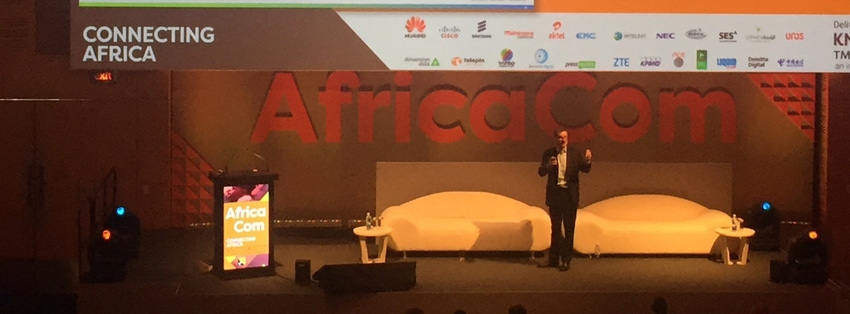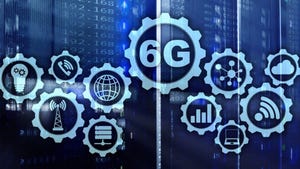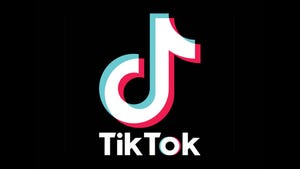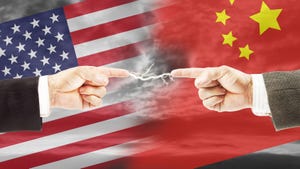AfricaCom 2016 - electricity first, then broadband
Basic electricity for Africa's 600 million disconnected citizens will always be more important than internet, according to AfricaCom 2016's keynote speakers.
November 16, 2016

Basic electricity for Africa’s 600 million disconnected citizens will always be more important than internet, according to AfricaCom 2016’s keynote speakers.
The keynote sessions on the opening day of AfricaCom here in Cape Town delivered something of a reality check, with speakers agreeing in unison that providing basic electricity to everyone is the first and foremost.
The theme of this year’s show is economic development and social empowerment through digital connectivity. While there was lots of talk about closing the digital divide and how GDP in South Africa alone can jump up 1.4% in the next year, speakers from the South African Government, Facebook, Intelsat and entrepreneurial backgrounds united in saying this all means nothing if we can’t get fundamental power to the 600 million African citizens currently without electricity.
Just to reiterate: 600 million people don’t have electricity in Africa; that’s nearly twice the total population of the USA.
This was embodied perfectly during a talk from Thione Niang, who co-founded Akon Lighting Africa, which actively works in delivering low-cost solar power to Africans across the continent. The message in Niang’s talk was clear: if we don’t want to miss out on another generation of youthful innovation, let’s get electricity and lighting to everyone first, then we can start getting everyone online.
In rural societies across Africa where power is less of an issue, the importance of cellular connectivity cannot be understated. In a presentation from Intelsat, VP EMEA Jean Philippe Gillet told a story which emphasised firstly how much of a challenge connecting some towns can be, but also of how important it is for that town once cellular has arrived.
A project with Vodacom to deliver a solar-powered satellite-connected cell tower in the DRC town of Numbi involved geographical, logistical and safety challenges. Workers from Vodacom, with the help of villagers, had to carry the individual components of the cell tower by hand (a combined total weight of 2,660 kg) nearly 30 kilometres due to a lack of road coupled with rolling, slippery hills across the town. Because of the difficulty in accessing the town combined with security concerns the engineering team from Vodacom had to complete the construction of the tower in a single visit.
The result, however, saw a previously disconnected town now readied with cellular connectivity for the first time. Gillet explained while there is a 24-hour security presence around the tower, the threat of vandalism, theft or destruction is less of a concern for this particular tower because of its importance to the town. Villagers are said to be actively helping to protect the tower.
The case of Vodacom in Numbi is just one of the many, many examples ongoing across the continent today. Africa is the world’s fastest growing mobile region. Back in 2010, until about 2013, African mobile traffic growth tracked substantially below the global average. However, since then the trend has reversed; global traffic growth has plateaued somewhat, while African uptake is on an almost exponential curve upwards.
One of the final presentations of the day came from the minister for telecommunications for South Africa, Minister Dr. Siyabonga Cyprian Cwele. Cwele welcomed anyone, from anywhere in the world, who wanted to aid the development of Africa’s connectivity ambitions.
“Bridging the digital divide is our collective responsibility, not just the government’s, not just businesses, but everybody’s,” he said. “I’m just a villager, I don’t know technology. But together with everyone here we are trying to overcome the challenges facing the African market. Collaboration across countries is very important, because we’re very small across borders, but if we hold hands we become an attractive proposition to external investment.
“I’m really urging everyone here to help translate technology into our own languages, the government doesn’t necessarily have the capacity to do it on its own, so we need to work with entrepreneurs and everyone else out there. In short, if we can do that and partner with everyone we can, then they’ll all say the same thing.
“In the past, we used to fight with spears, but now it’s time to put those spears away and use tablets to fight against our digital emancipation.”
While many parts of the exhibition floor were talking about 4K video streaming, superfast broadband, LTE-A or in some parts 5G; the message from the keynote speakers was quite clear. Let’s get connectivity sorted at a grass roots level; let us get everyone powered first and then connected; let’s walk before we run; and let’s close the digital divide by doing the basics right first.
About the Author(s)
You May Also Like











_1.jpg?width=300&auto=webp&quality=80&disable=upscale)


.png?width=800&auto=webp&quality=80&disable=upscale)